第17章 READING OF THE YOUNG(3)
Question 10asks what methods are used in directing children's reading,and if a special assistant is at their service,or if they are encouraged to consult the librarian and all the assistants.Many librarians overconscientiously say,"No methods,"but at the same time acknowledge the personal supervision and friendly interest that were meant in the query.
Only nine do not report something of this kind.Six have,or are about to have,a special assistant,or have already opened a bureau of information.Five say that they pay special attention to selecting the best books,4of the larger libraries have open shelves,and 2are careful in the choice and supervision of assistants.
In answer to question 11,5report special reading rooms,present or prospective,for children;3more wish that they had them,while others believe that the use of a room in common with older readers teaches them to be courteous and considerate to others.
Most reading rooms are open to children,who sometimes have a table of their own,but in a few cases those under are excluded.
My own opinion on the subjects treated in the questions are:
1.It is easier for a librarian or assistant to find a book for a child if whatever is adapted to his intelligence on a certain subject is kept by itself,and not with other books which may be dry,out of date,or written for a trained student of mature mind.
2.It is easier to help a child work up a subject if the books which he can use are divided into classes,not all alphabeted under authors.
3.A separate card catalog for children often relieves a crowd at the other cases.A printed dictionary catalog without notes does not help a child.
A public library can make no better investment than in printing a classified list for children,with short notes on stories illustrating history or life in different countries,and references to interesting books written for older readers.Such a list should be sold for 5cents,much less than cost.
4.The money spent in paying for the paper and time used in covering books is just as well employed in binding,and the attractive covers are pleasant to look at.
5.The books can be kept reasonably clean if children are made to understand that they must not be taken away,returned,or if possible,read with unwashed hands.City children soon begin to understand this if they are spoken to pleasantly and sent away without a book till they come back in a fit state to handle it.
6.As soon as a child can read and write he should be allowed to use books.A proper guarantee from parent or teacher should,of course,be required.
7.A child in school cannot read more than one story book a week without neglecting his work.If he needs another book in connection with his studies he should take it on a school teacher's,or nonfiction card.
8.It is best,if a child has only one book a week,for his card to be of a different color from others,that it may be more easily distinguished at the charging desk.
9.It has been proved by actual experiment that children will read books which are good in a literary sense if they are interesting.New libraries have the advantage over old ones,that they are not obliged to struggle against a demand for the boys'
series that were supplied in large quantities fifteen or twenty years ago.
10.As soon as children learn that in a library there are books and people to help them on any subject,from the care of a sick rabbit to a costume for the Landing of the Pilgrims,they begin to ask advice about their reading.It is a good thing if some of the library assistants are elder sisters in large families who have tumbled about among books,and if some of the questions asked of applicants for library positions relate to what they would give boys or girls to read.If an assistant in a large library shows a special fitness for work with children,it is best to give it into her charge.If all the assistants like it,let them have their share of it.
11.The question of a children's reading room depends on the size of the room for older readers,and how much it is used by them in the afternoons.Conditions vary so much in libraries that it is impossible for one to make a rule for another in this case.